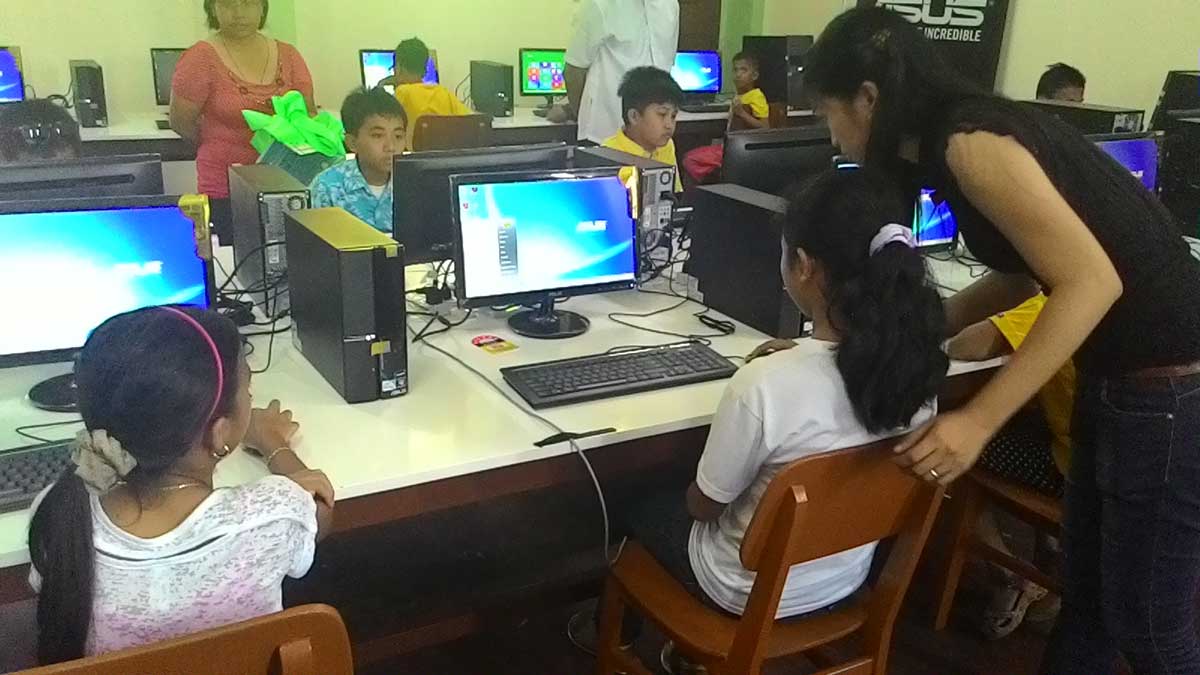More than a year after the devastation brought about by Typhoon Haiyan, the APEC Digital Opportunity Center through the ASUS foundation, opens an e-learning center at the Liceo del Verbo Divino last March 31.
The e-learning center is a joint project of the APEC Digital Opportunity Center, Taiwan Economic and Cultural Office, Manila Economic and Cultural Office, Department of Science and Technology – Information and Communications Technology Office and the ASUS Foundation to help pave the way for job opportunities for Tacloban residents through computer learning programs.
In 2013, Typhoon Haiyan, one of the strongest tropical cyclones ever recorded, made a landfall in the Philippines and affected an estimated 5.9 million workers, especially those living in Tacloban, the provincial capital of Leyte. Many international and local organizations have extended aid to help restore employment and livelihood in the devasted area. The ASUS Foundation donated 20 computer units for the center with 2 instructors, which will help thousands of people and students who were displaced by the typhoon increase their computer literacy so they can have more work and educational opportunities.
“Our Search of Incredible means using innovations in technology to make lives better. We are very happy with this opportunity given by ADOC to be able to equip the people of Tacloban the computer know-how so they can rebuild their lives,” says George Su, ASUS Technology Philippines, Inc. Country Manager.
Since 2010, ADOC has been working with private and public sectors in the Philippines to set-up e-learning centers in urban and rural areas to reduce the digital divide by enabling people to overcome limitations due social or education status, and to enjoy the benefits of digitalization. The Tacloban e-learning facility is currently the 6th from ASUS Foundation in the country.








Asus has done so much for so many here. I salute the company and would encourage those seeking to get a quality netbook to look first at the Asus Transformer Book T100TA-DK050H.
It is awesome for the price..
AYe, can’t argue with that. They’ve been doing these kind of things for years now.